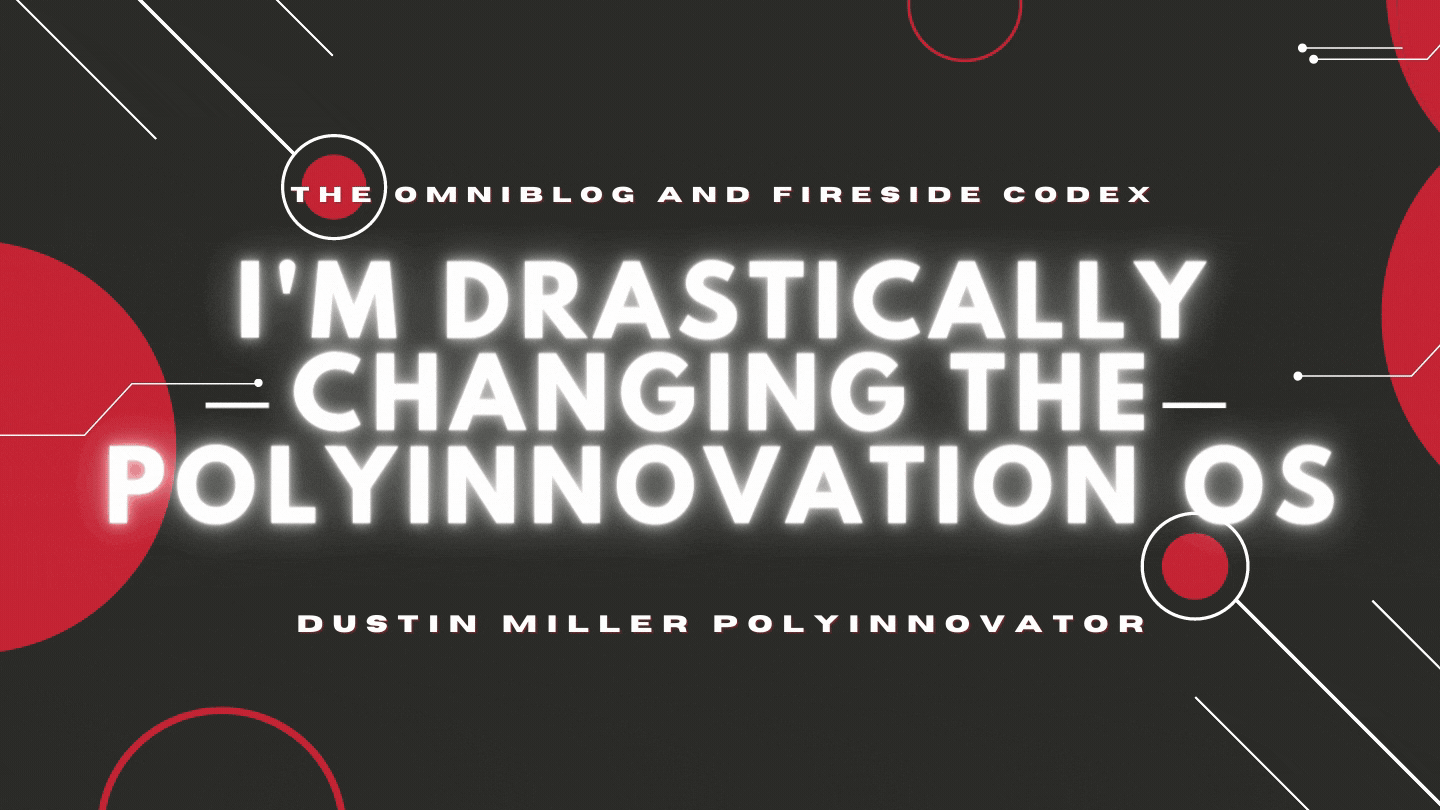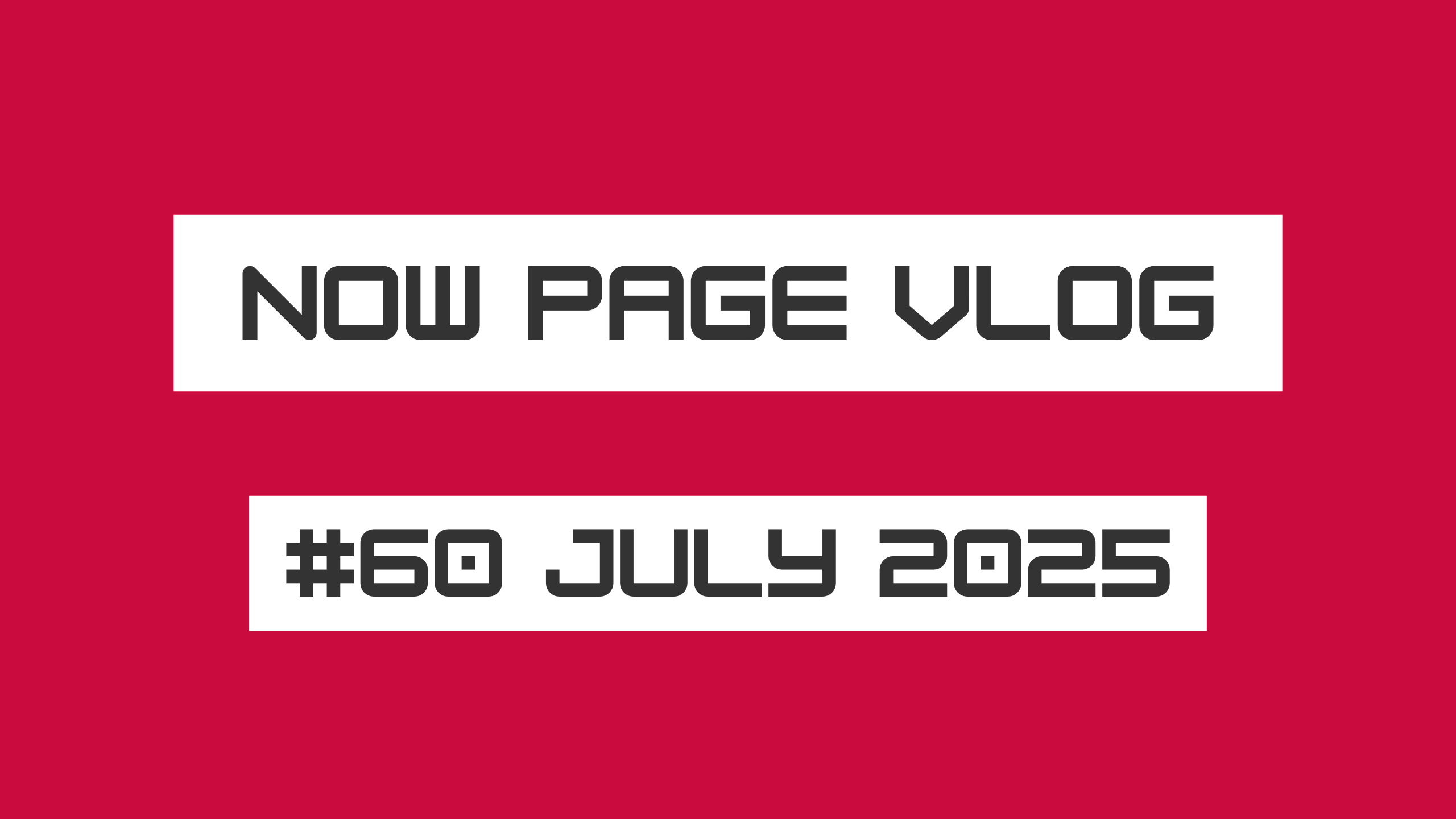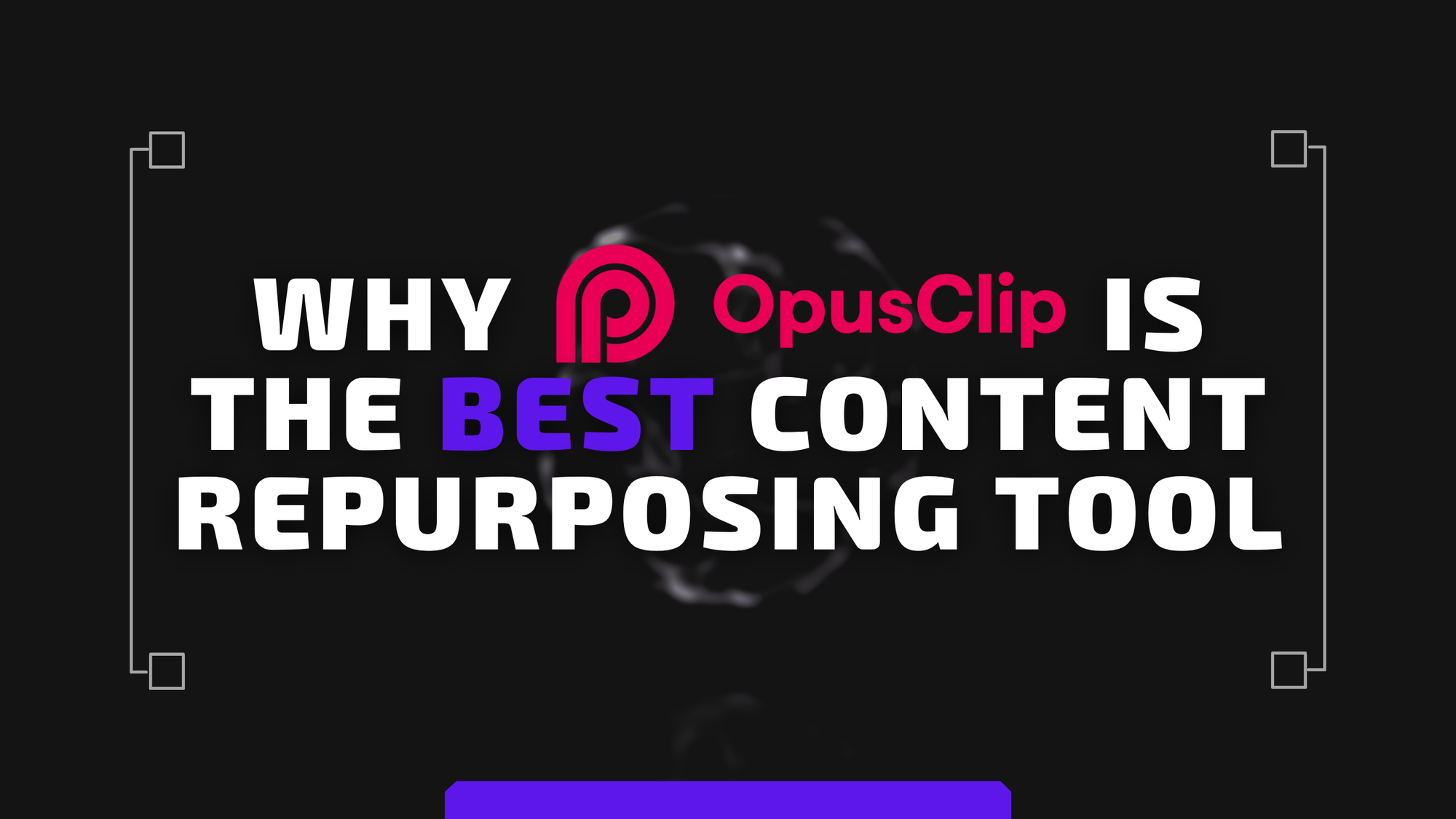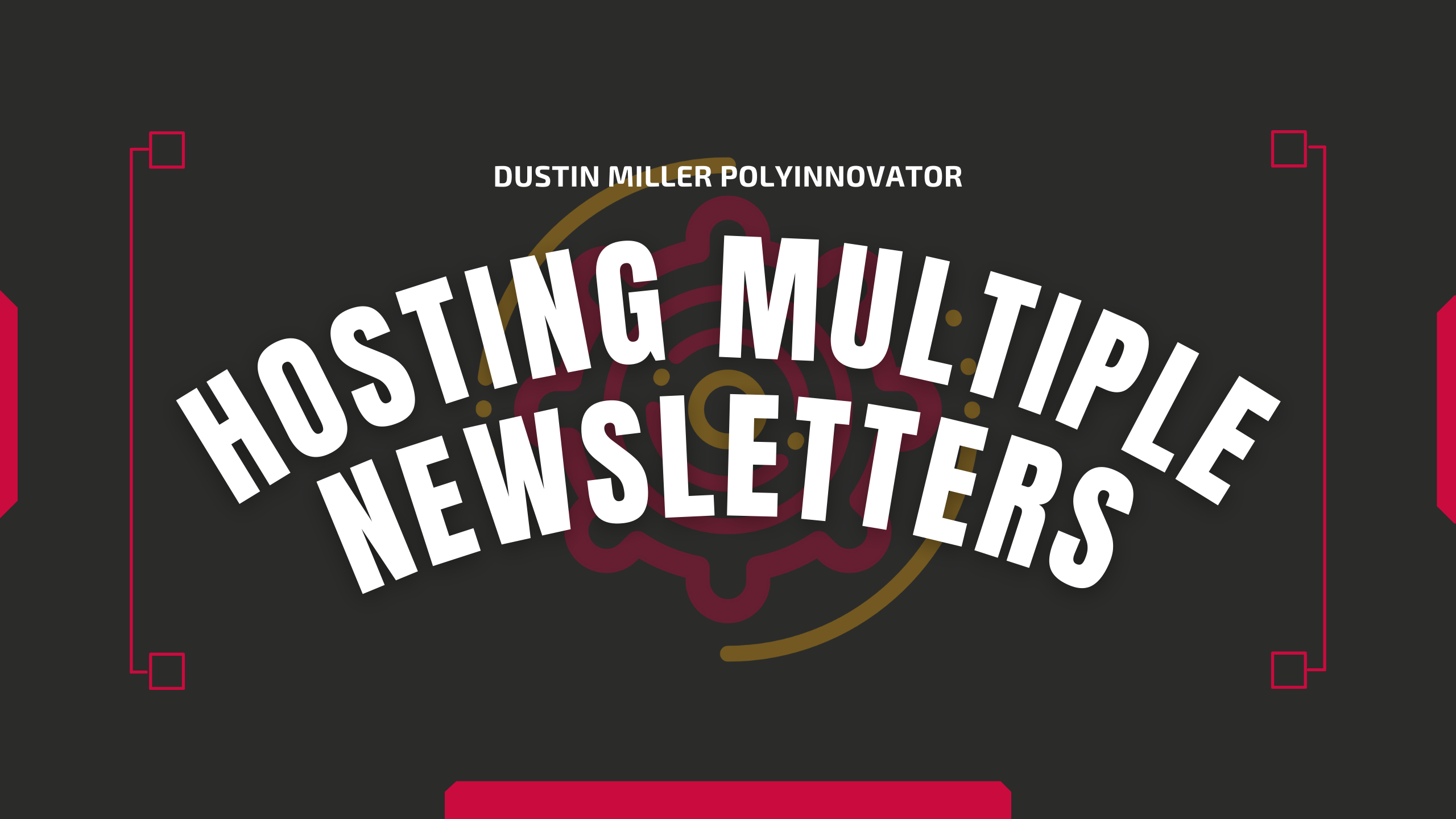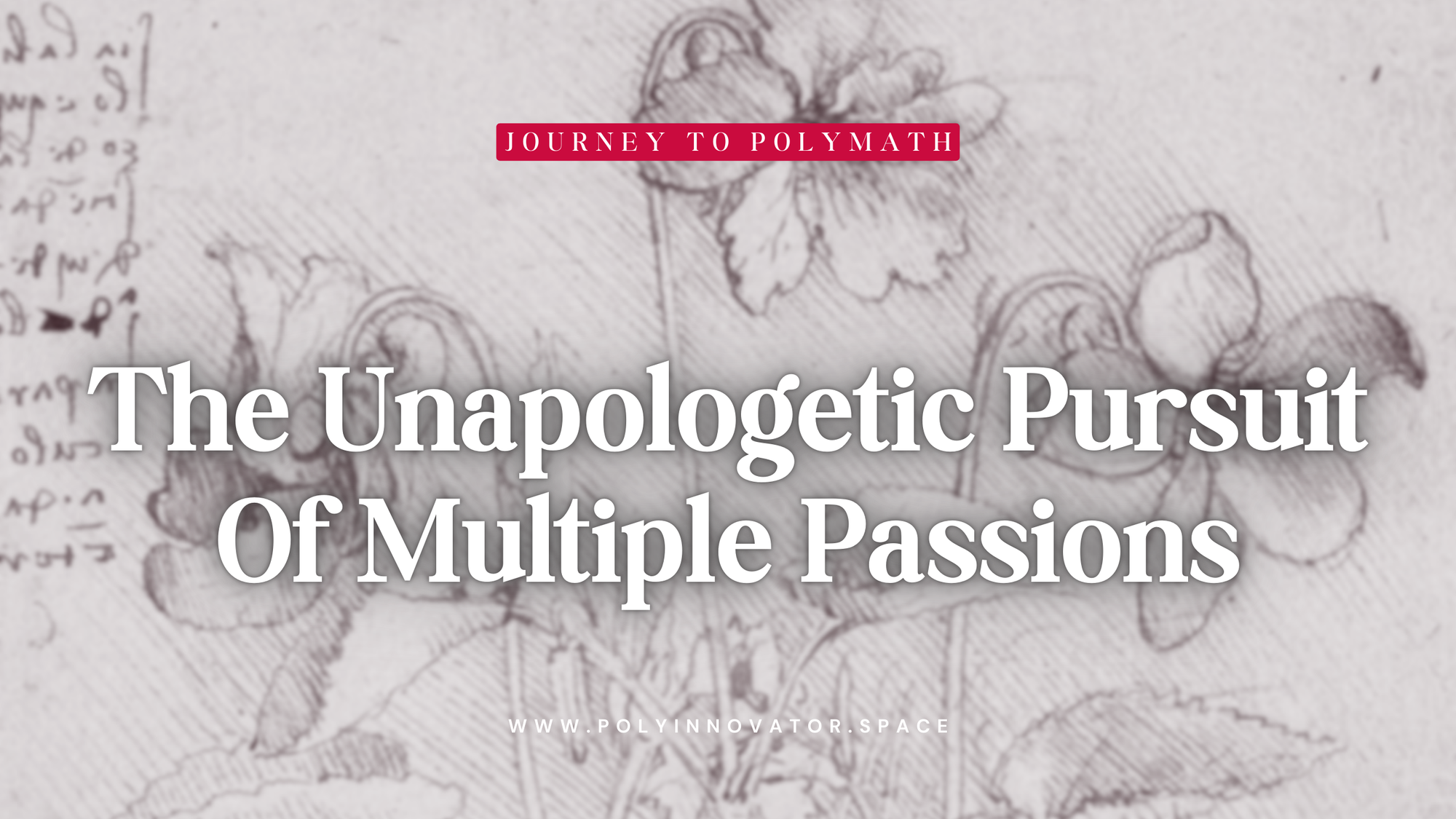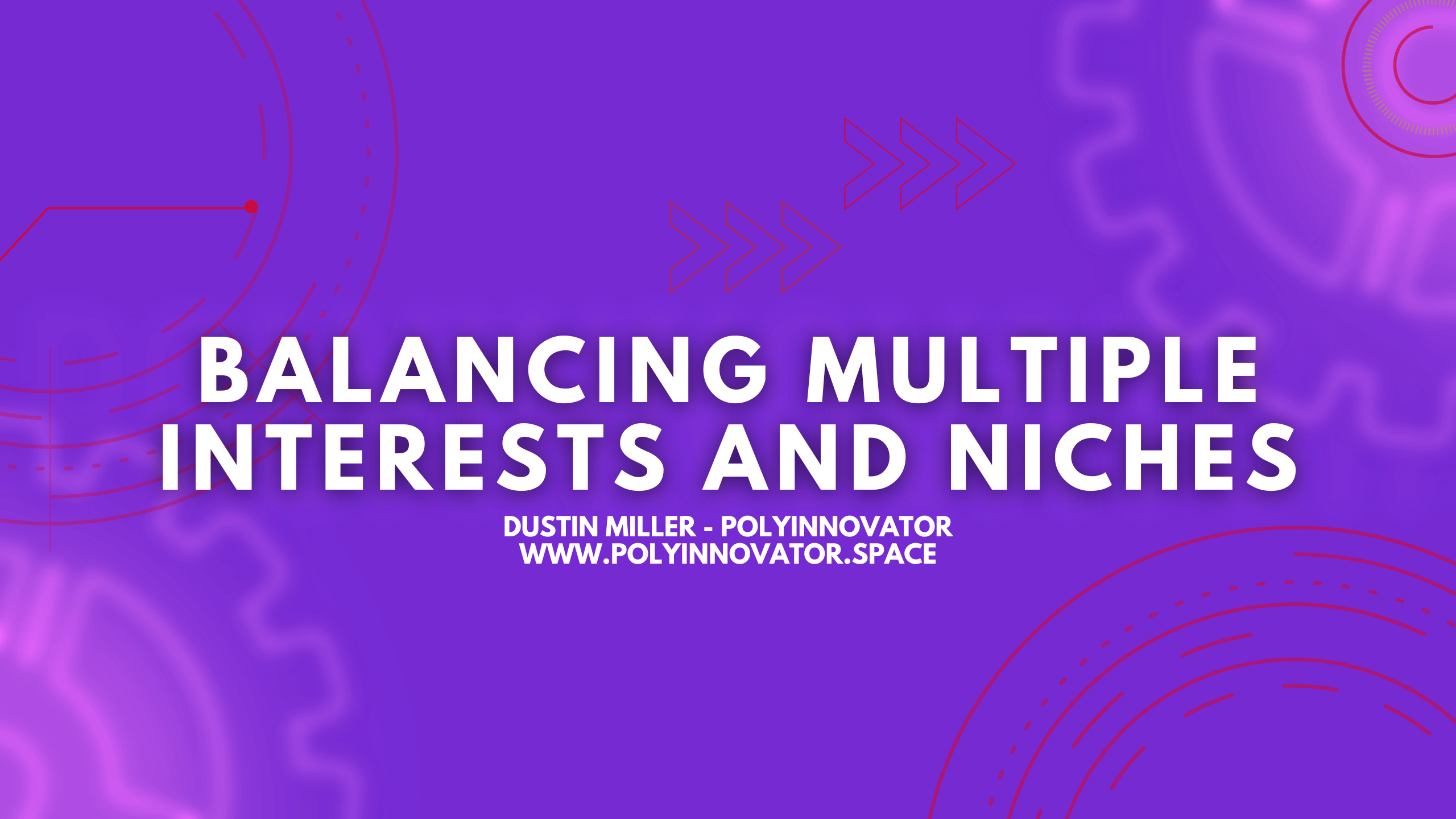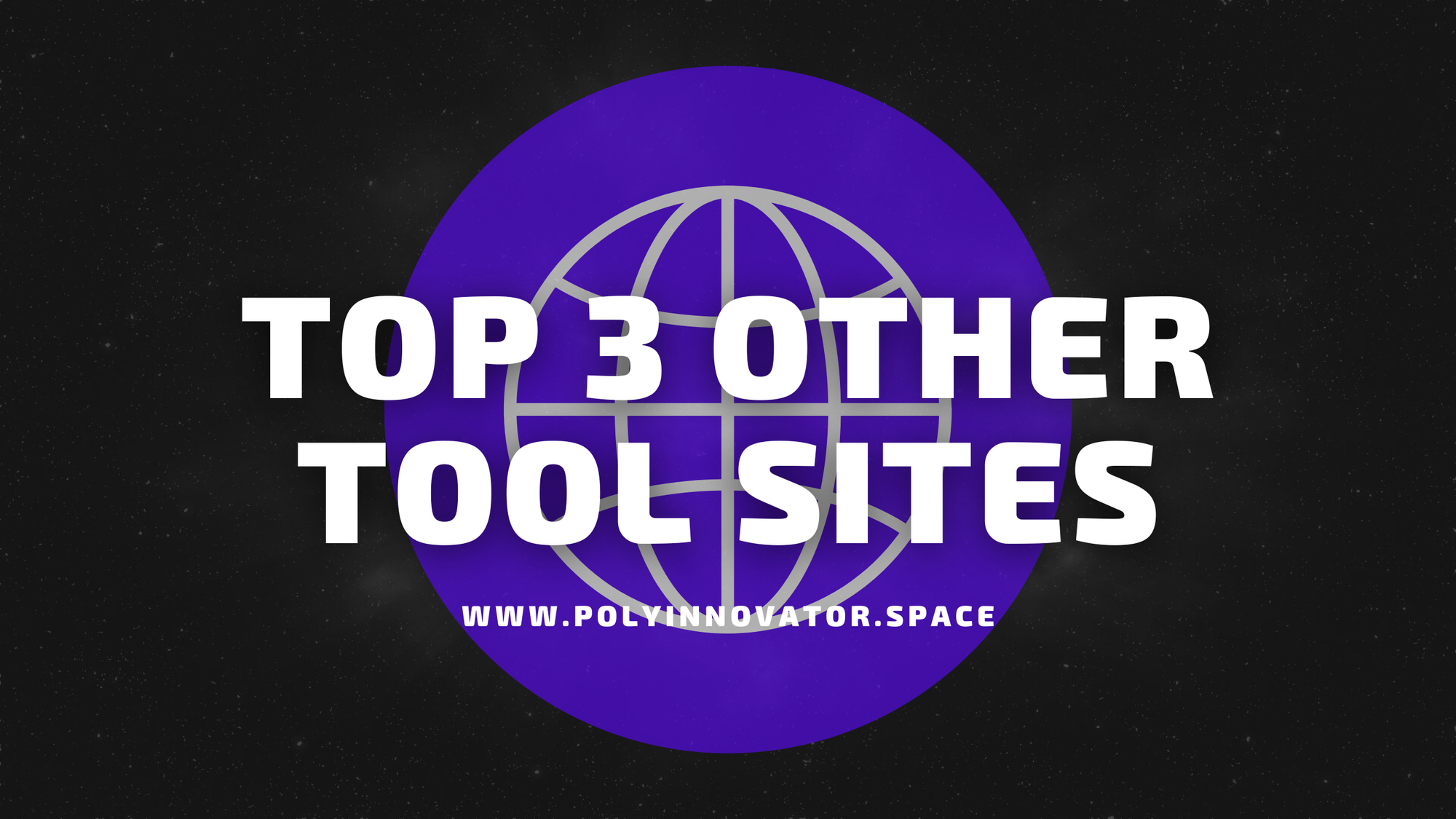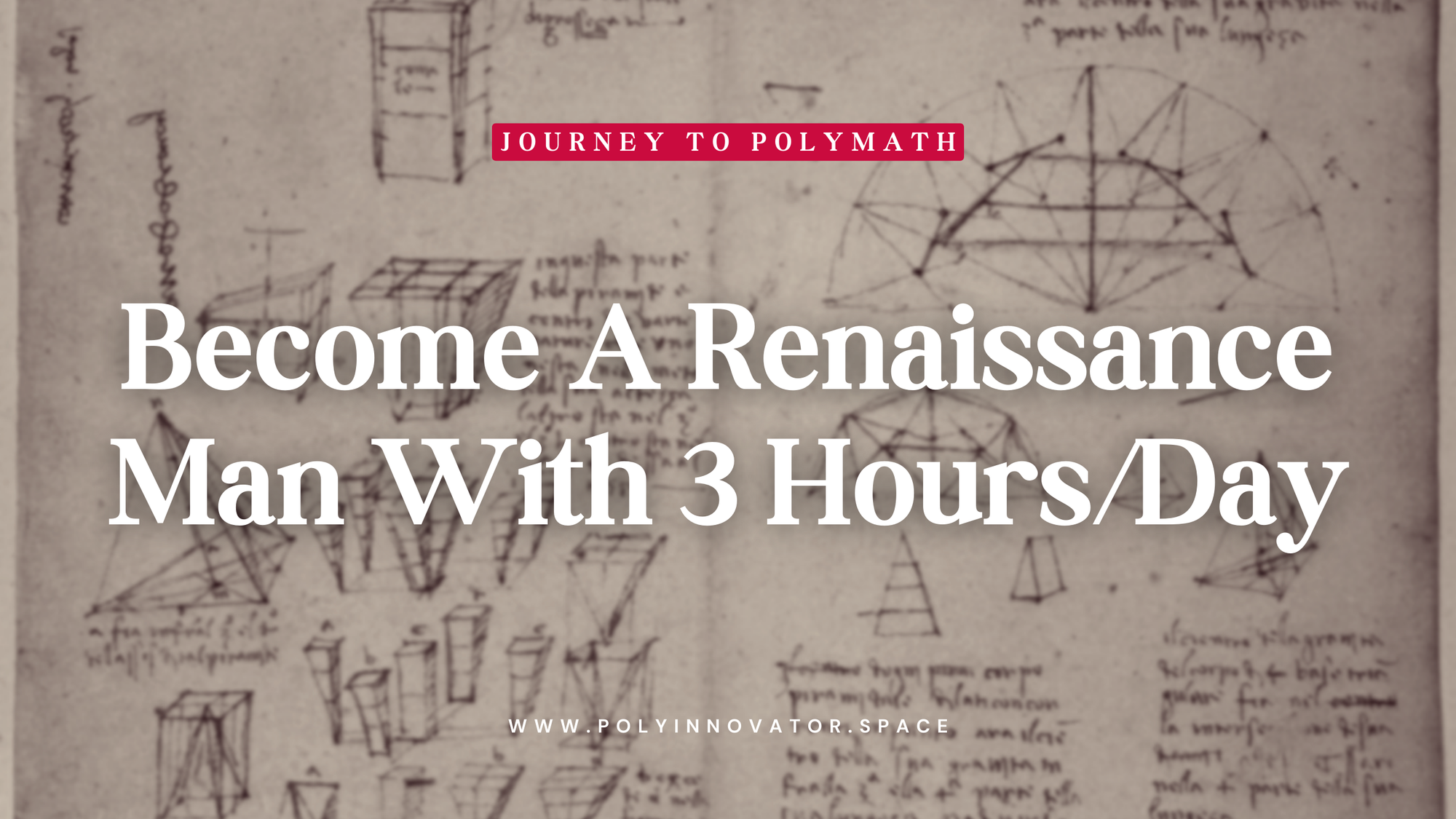Over the years of PolyInnovator and the United Living Construct both, I have created systems and philosophies to improve my life. Sharing with you all through content. In recent years I put them together into a "Self-EduDevMent" ideal, or more aptly named the Personal PolyInnovation System.
In this time I fully adopted Notion.so as my tool of choice. I've seen how most of the other major powerusers have used the tool, and how I differ. I have been trying to create the PolyInnovation from working concept into a working prototype in Notion.
Note: In this post I am trying to be very pragmatic. So if I refer to some examples as low-level or medium, or even power user. There is no disrespect meant towards anyone. Just simply a way to explain where someone is on their Notion/Productivity journey.
Why is the PolyInnovation so Important?
In concept the idea is meant for personal growth, and that also includes what you do with that growth. Taking what you've learned, and doing something with it. Whether that is public or not it doesn't matter. Just making sure you are writing down notes, creating content, or doing something to output and manifest your now acquired knowledge and wisdom.
The idea of a self-education foundation, built upon with consistency of habits and systems, and exponentially growing with self-development.
Let's Start with How it Was Before
I kept it in this 1-4 format, and really pushing the whole self-education part first. Especially since the Modegree is what I considered the first phase of PolyInnovator to be. This linear structure is important conceptually, as if you are new to all of this then you don't want to get overwhelmed. Especially when it comes to the Four Pillars, as they can be a lot just on their own. The personal branding aspect can also seem to be not important, but as Gary Vee says quite astutely "We are all media companies". Every post you make is an example of who you are online, even that one little tweet.
Self-Education - Modular Degree
Being able to teach yourself is the first step towards success. Some of the greatest minds were autodidactic. They got to where they were because of the cross-disciplinary curiosity and learning they had in life.
Nowadays we have all this information online, at our finger tips, some of it like books and courses that are not easy to finish quickly. You need some way to prioritize, and more importantly organize. That is what the Modular Degree is about.
Self-improvement - Habits and Systems
Once you have aquired a skill, then you must find a way to incorporate it into your life. The rituals or routines you employ during your day to day actions are what do this. How you build them out depends on your life systems in place (including digital ones), and how well you can form positive habits.
Understanding this process leads to a daily output of doing things, and that 1% of effort over time compounds over the year.
Self-Development - Four Pillars Philosophy
This was actually the start of the system, for I made the philosophy first, worked on my own habits and systems 2nd, and then created the DIY Modegree. It was interesting because I wanted to try and modernize old concepts for people in the new age.
Not like the "new age spirituality" stuff you would buy in the stores kind of thing, but rather just take the concepts and apply them to modern circumstances.
Other people have done the same, but I felt that I had a unique point of view. The Four Pillars are the areas of life that are most impactful, and near dear to our livelihoods.
Self-Branding - Networking and Reputation
How you present yourself to the world is key, and your online presence/reputation/ or personal brand is how you do it. They all mean the same thing, your overall definition in other people's minds when they think of you.
By developing yourself, cultivating knowledge and habits, as well as simply the holistic aspects of your life; You can then convey your ideas more effectively to people. That ability to communicate is crucial for you to be successful in any field.
Next the Amazing Alternative Systems
By no means of disrespect to the phenomenal creators of these other modus operandi(s), I do not think these are fruitful for me. Perhaps if I 100% adopted them they would be, and I just wanted to mention that. Simply speaking each one of these has something unique to offer, and I encourage you to go check them out.
My goal however was to make my own PolyInnovation System in replacement of them. Of course I'd learn from the strong/weak points of each. This is why it has taken me so long to do much with the PPS.
If any of my notes below seem off, then perhaps it is cause of a limited understanding of the methodology. I pride myself on the amount of digging I have done, but if I am wrong about something then please lmk.
GTD: Get Things Done
- CAPTURE: Everything goes into an inbox (resonance calendar) and mindsweep
- CLARIFY: Conduct a triage, track habit
- ORGANIZE: Add meta data, sort into proper category
- REVIEW: Whats important but not urgent (IMO Eisenhower Matrix)
- ENGAGE: Do the right work, i.e. FOCUS
PARA: Projects. Areas. Resources. Archives.
This is a common system people have been using, and I super respect the creator of it. The problem is that it was applied to Notion, versus made with notion in mind. That leaves some weakpoints in use case. In my view it is rather redundant in notion. Projects being small work, and then area being big. Then it repeats, resources being small, and archives being big. The latter to to me are one and the same when it comes to Notion.
I ended up just combining them, and I could just simply tag them differently if need be. The strongest point of the PARA model, is the projects and areas I would say. That is what people should learn first, as it is quite useful when it comes to actually moving the information through the cycle.
Zettlekasten
Unlike GTD where ideas can get scrapped, or at least archived based on their importance. The ZK method is more about writing down every idea, and over time collecting them. They will inevitably group up, and then you have a collection of uniquely tagged ideas that can form some output.
PPV: Pipes. Pillars. Vaults.
This is one the few systems made for Notion, and it shows. For the templates of all of the others are great, but is this sheer level of interconnectivity of the PPV that is unique. I've spent a ton of time watching August's videos, and I will keep doing so as there is much to learn.
The mindset behind it is simply organize items into a Vault/database, make connections through them via the Pipes, and understand the Pillars of your life. Not to be confused with the Four Pillars, although they certainly fit into August's definition of Pillars!
It is interesting to note that the system also includes other aspects of life that other ones don't, such as habit tracking, content production, and more
Life OS
My limited understanding of this makes it to where I don't hold any opinions, but it just seems to be a collection of templates that don't really flow too well together, but in individual cases they work sometimes better than others.
I believe there is also a book on the matter, in which case I will come back and edit this section upon reading.
Bullet Journal Method
Track the past. Organize the present. Design the Future.
Not much to say on this, as it is simply the input portion of the sequence, but worth noting.
How well do they translate to Notion?
Some have created what they call a life os or wiki, but in actuality most are just similar to how most middle level users of Notion end up making. Not saying anything negative about that, but to me as a systematic thinker I've seen the pattern many times.
It is the Second brain and PPV by August that seem to have expanded the most beyond just the basic ideas. The latter one actually being made with Notion in mind from the get go.
The problem with some is that they're too left brained or logical, and for me as someone in the middle it was a bit too much ironically. Like I AM a poweruser, and I am a systemmatic thinker, so you would think that I would be happy with them. In a fundamental way I was completely enamoured, but in a practical am I going to use this sort of way I couldn't do it.
I think that would mean two things, either the concept (like SB or PARA) didn't translate to Notion well enough, or were too complicated from the application standpoint. I've watched around 40% of August's channel at the time of this writing, spending many hours consuming his knowledge, and intend on watching all of them. Yet I still can't fully grasp the system in a practical way, and I most of his free templates pretty well at this point.
Point being that despite them all being amazing I thought something needed to be done.
Here are a couple Resources I've made for you to get started with Notion!
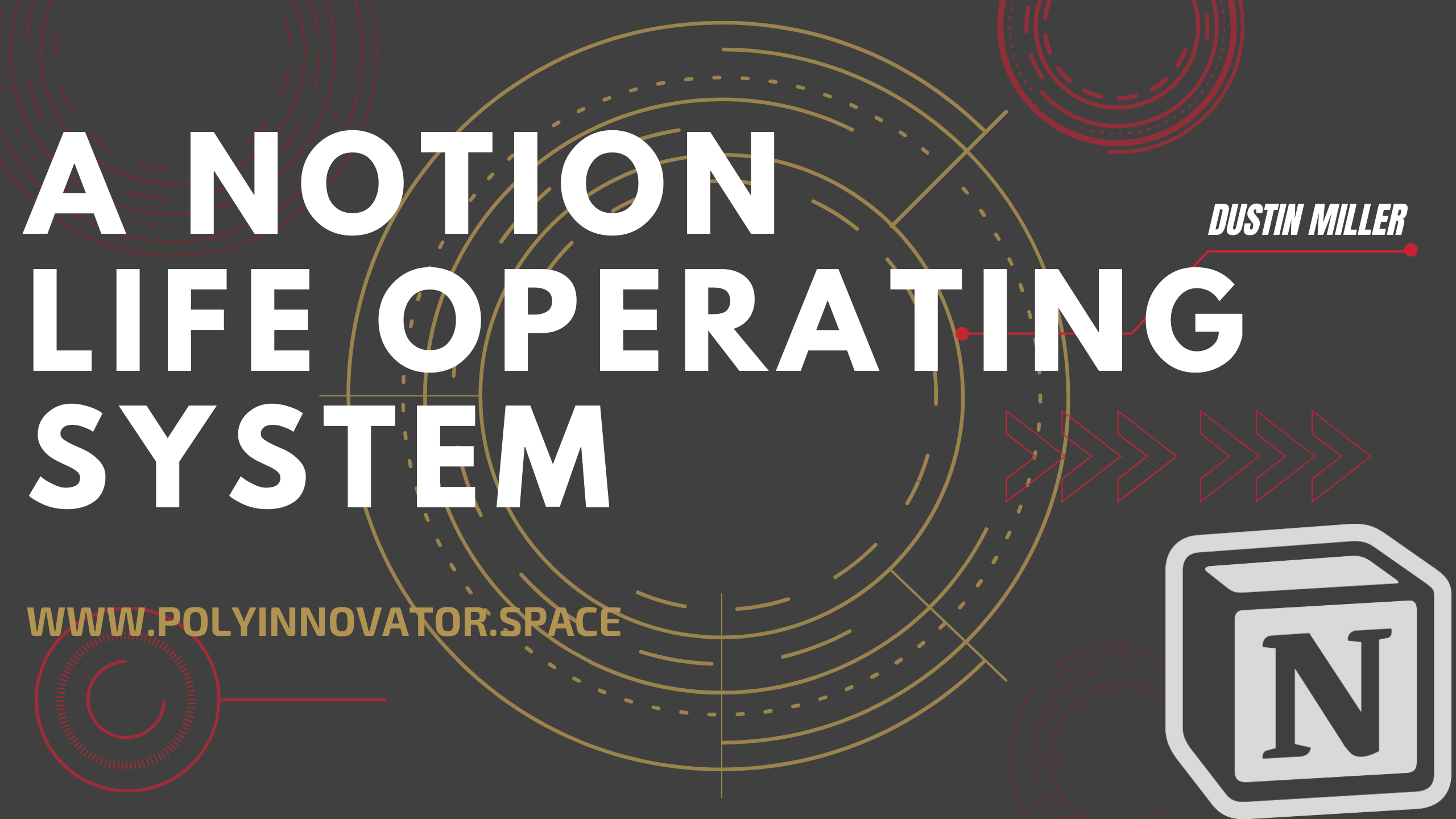

Input. Slow Burner. Output.
This is the main ethos to many of these systems ^, being able to get something into your brain (or second brain), and then over time it becomes ready to output in some way.
Zettlekasten I think is the model we have to thank for that, but the other systems found ways to expand upon it.
How you go about using that slow burned knowledge/ideas, is crucial to the level of importance it has. Maybe some idea goes towards a simple blog post, but it could have gone to an important book! Who is to say it couldn't go to both?
SCALE: Supra > Macro > Meso > Micro > Nano > Pico

This was an experiment I was doing when it came to scale. The levels of abstraction of systems we've mentioned, including my own, just didn't seem to work. Para is only two: Small, Big, Small Big. PPV has 3. PPOS has four, and in truth I'm not sure how many levels are needed. Technically I think 3 is better for our actual brain, but the point is to make a second brain that can hold more than you normall could. So why stop at 3?
Perhaps Tesla was onto something with the 3, 6, 9....?
How I Plan to Use the Other Systems
Without doing anything nefarious like claiming I created something I didn't. I just want to clarify I have created my own systems like the OmniContent Production Database, Intricate polycast guest CRM, and of course the Modular Degree too!
I am a poweruser myself, and there is a lot I can learn from the other creators. We all stand on the shoulders of giants. Like Zettlekasten or Da Vinci for example. They both having elaborate systems for themselves. If some database or template resembles too closely to another creator's I will do my best to credit them for inspiration when sharing them in the future. I think that is only right!!
In any case I think there are bits and pieces we can take from each. The para system is in/backburner/out, the PPV is like GTD and focuses on the output with a bit of input in there, PPS is about growth and consistency.
There is improvement for all of them needed to be frank. Some focus too much on input, others on output, and even more in the middle ground. Now this opinion is mainly originating from their respective Notion Templates. The actual philosophies and systems outside of Notion may have more of a balance. However in the aplication of those ideologies in Notion I think there needs to be more going on. Simplfying some areas, as well as expanding upon others. For example my Modegree concept is a perfect fit for Input, but people need to get used to Self-Education to make use of it.
The creators of the systems have a good learning habit, but perhaps others reading this may not. Either way it should be approachable by all.
Putting it All Together
In truth I am making this blog post to organize my own ideas. I tried brainstorming with my roommate, but he didn't know about the other systems yet. So part of that process was giving background. Not to mention I feel like taking the polymathic approach, and taking in everything I've created. However some things by others may be better, and getting over that is a hurdle of ego too.
I'm looking at my cannibalized dashboard, of which the pro notion users would have made a copy of just in case, but it is like clay you should have one chance to make it right IMO. I had it set up close to August Bradley's, or Ali Abdaal's when I first got started, but for the PPOS* I had it as: Input, Tracking, Archives/Resources, Output. I even tried incorporating the Four Pillars Philosophy in a greater way:
Four Pillars of PolyInnovation
This was an idea I had during my experiments, what if each of the Four Pillars also aligned with each tier of the PPS.
Mind - Self-Education - Modular Degree
Body - Self-improvement - Habits and Systems - Day to day micro
Spirit - Self-Development - Four Pillars Philosophy - Quarterly or Yearly
Emotions - Self-Branding - Networking and Reputation
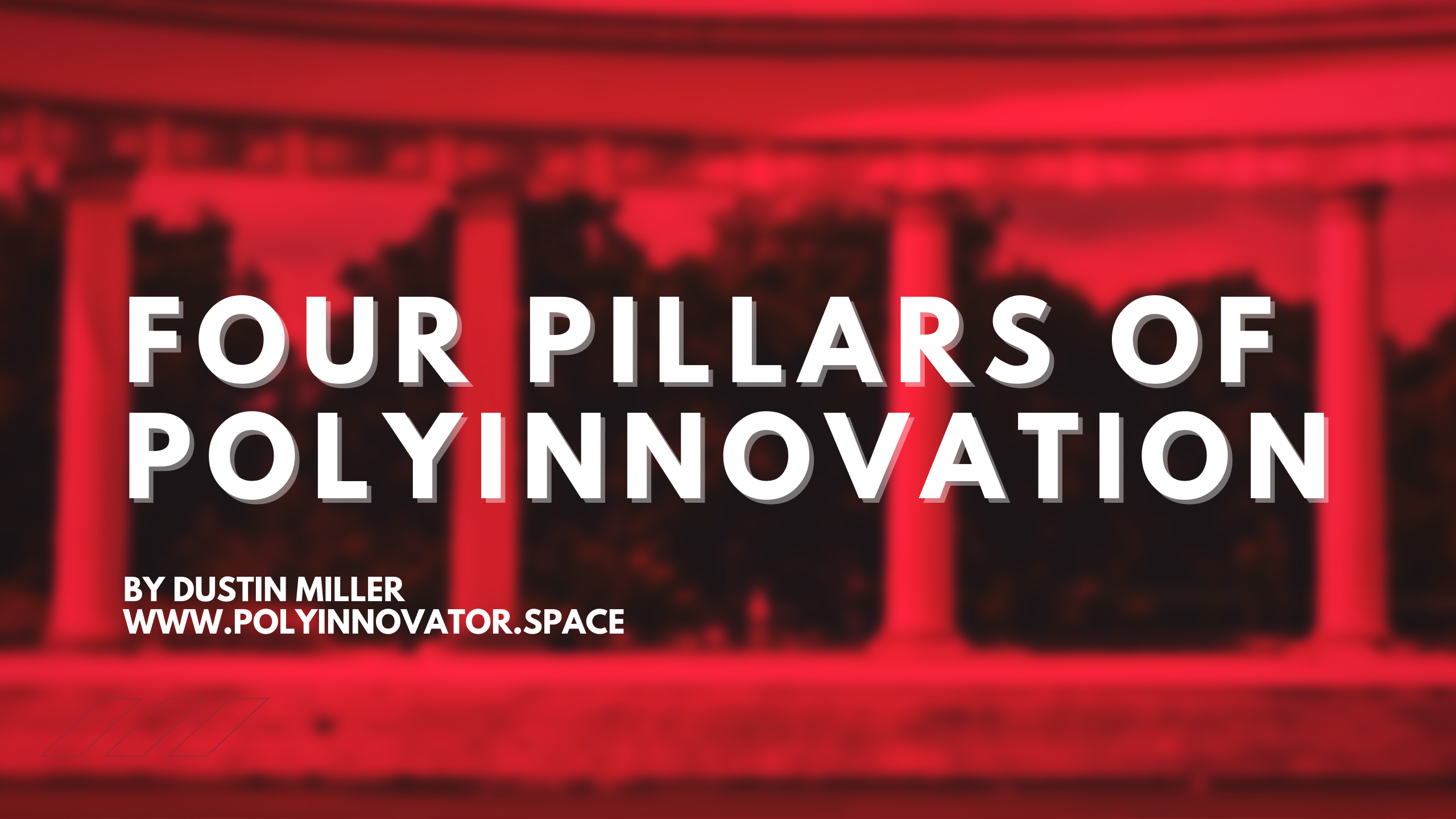
Unique Concepts
I mean the idea of a Second Brain, or Life OS, Habitica: Gamifying Life, or even DEEP WORK by Cal Newport. They all have something unique to offer, and so what if someone (me in this case) were to combine them all? I still need to work on gamification of the PPS truth be told, but I AM working on that for the
Modegree 😉. I realized recently that the words by Gary Vee were right "Every one, every company, is a brand.", and that branding just means a reputation/online presence/ or what people think of you when you're not around.
That is why recently I added the Self-Branding aspect of the PPOS, and for me it just didn't register because my output IS the PolyInnovator Ecosystem.
Something we can use
In the end what matters is that the method or system is adopted, and I think I am on the way towards that purpose.
Not sure if I'll keep the Supra to Pico Scale, six does seem like a lot, and it isn't about the name. For it is more about the order of which to do things, and allowing cross sections to happen.
Glossary:
PPOS: Personal PolyInnovation Operating System.
PPS: Personal PolyInnovation System.
PS: PolyInnovation System.
PPV: Pipes, Pillars, and Vaults.
PARA: Projects, areas, resources, archives.
GTD: Get things done.
![Official Website for Dustin Miller PolyInnovator [LLC]](https://polyinnovator.space/content/images/2025/03/polyinnovator-logo-2024.png)

